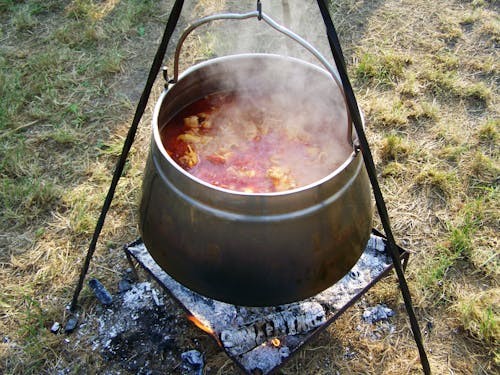When can I travel after testing positive for Covid in 2023? The answer isn’t always straightforward, but at TRAVELS.EDU.VN, we’ll guide you through the latest guidelines, ensuring you make informed decisions for safe and responsible travel. Navigating post-Covid travel involves understanding quarantine periods, testing protocols, and potential travel insurance options. This guide provides clarity on minimizing risks and planning your trip confidently.
1. Understanding Current Guidelines for Travel After Covid-19
Navigating travel after a COVID-19 diagnosis requires understanding the latest guidelines from health authorities like the CDC (Centers for Disease Control and Prevention) and TSA (Transportation Security Administration). These guidelines aim to balance public health safety with the realities of modern travel.
1.1 CDC Recommendations
The CDC no longer requires mandatory isolation after testing positive for COVID-19 but recommends precautions to prevent spread.
- Self-Assessment: Monitor symptoms. If symptoms are improving and you’ve been fever-free for 24 hours (without using fever-reducing medication), you can resume normal activities.
- Additional Precautions: For the next five days after resuming activities, consider wearing a mask, especially in indoor settings. Maintain physical distance from others and improve ventilation where possible.
- Testing: If you develop a fever or worsening symptoms, re-isolate and consider retesting.
- Consultation: Seek advice from healthcare professionals for personalized guidance, especially if you have underlying health conditions.
1.2 TSA Guidelines
The TSA does not have specific COVID-19 restrictions but advises following CDC guidelines for travel.
- Safety Measures: Wear masks, practice social distancing, and sanitize hands regularly while in transit.
- Pre-Flight Check: Ensure you are symptom-free before heading to the airport to minimize potential spread.
1.3 What about state and local guidance?
State and local health departments may have additional or more stringent guidelines. Always check local regulations before traveling.
- Example: Some areas might require a longer isolation period based on local transmission rates or healthcare capacity.
- Stay Updated: Regularly check local health department websites for updates to stay informed about any changes.
1.4 Is COVID-19 Travel Insurance Necessary?
Given the potential for unexpected illness, travel insurance is essential.
- Comprehensive Coverage: Look for policies that cover trip cancellations, interruptions, medical expenses, and quarantine costs due to COVID-19.
- Policy Details: Review policy exclusions and limitations to understand what is covered.
Table 1: Checklist for Traveling Post-COVID-19
| Action | Description |
|---|---|
| Check CDC Guidelines | Review current recommendations for isolation and precautions after testing positive. |
| Review TSA Guidance | Understand safety measures to follow at airports and during flights. |
| State & Local Regulations | Ensure compliance with state and local health department guidelines. |
| Assess Your Symptoms | Monitor symptoms and ensure improvement before traveling. |
| Acquire Travel Insurance | Secure a comprehensive travel insurance policy covering COVID-19 related issues. |
| Pack Protective Gear | Pack masks, hand sanitizers, and disinfectant wipes. |
| Inform TRAVELS.EDU.VN of your concerns | We can help you navigate travel insurance options, and help reschedule your trip |
1.5 Pro-Tip
For customized advice and travel arrangements, contact TRAVELS.EDU.VN at +1 (707) 257-5400 or visit our location at 123 Main St, Napa, CA 94559, United States. We offer support to ensure your travels are both safe and pleasurable.
Image alt: Traveler in airport wearing N95 mask for protection against COVID-19, following CDC guidelines.
2. Deciding When It’s Safe to Travel After a Positive Covid Test
Deciding when it’s safe to travel after a positive COVID-19 test involves assessing symptoms, understanding infectiousness, and considering potential risks to others.
2.1 Assessing Your Symptoms
Monitor symptoms closely and ensure they are improving before planning travel.
- Improving Symptoms: The CDC advises that you can resume normal activities when symptoms are improving and you have been fever-free for at least 24 hours without medication.
- Persistent Symptoms: If symptoms persist or worsen, consult a healthcare professional.
- CDC Guidelines: Adhering to the CDC guidelines ensures you’re following the most up-to-date recommendations for public health safety.
2.2 Understanding Infectiousness
Understanding when you are most infectious helps prevent transmission.
- Peak Infectiousness: Research indicates that people are most infectious in the initial days of a COVID-19 infection, typically 1-2 days before symptoms start and 2-3 days after.
- Reduced Risk: While the risk of transmission decreases over time, it is advisable to take precautions for up to 10 days after symptoms begin.
- Isolation Period: Even with mild symptoms, avoid traveling during the period of peak infectiousness to protect others.
2.3 Potential Risks to Others
Consider the potential impact on others, especially those at high risk.
- High-Risk Individuals: People with underlying health conditions or weakened immune systems are at higher risk of severe illness from COVID-19.
- Public Transportation: Traveling on planes or trains increases exposure risk due to close proximity with other travelers.
- Responsible Travel: Delay travel if you pose a risk to vulnerable populations, and take extra precautions such as wearing a high-quality mask.
2.4 How to Reduce Risks When Traveling
Even when symptoms improve, there are measures to reduce the risk of spreading the virus.
- Masking: Wear a high-quality mask, such as an N95 or KN95, to minimize the spread of respiratory droplets.
- Ventilation: Enhance ventilation by opening windows when possible or using air purifiers in enclosed spaces.
- Hygiene: Regularly wash hands with soap and water or use hand sanitizer, particularly after touching surfaces in public areas.
- Social Distancing: Maintain physical distance from others to reduce the likelihood of transmission.
Table 2: Checklist for Safe Travel After COVID-19
| Action | Description |
|---|---|
| Symptom Monitoring | Ensure symptoms are improving and you have been fever-free for 24 hours. |
| Peak Infectiousness | Avoid travel during the first few days when you are most infectious. |
| Protection of Others | Assess the risk to vulnerable populations and consider delaying travel if necessary. |
| Masking and Hygiene | Wear a high-quality mask and practice frequent hand hygiene. |
| Ventilation and Distancing | Improve ventilation and maintain physical distance from others. |
| Consult with TRAVELS.EDU.VN | Get expert advice on travel insurance and rescheduling options. |
2.5 Pro-Tip
For expert advice on planning your post-COVID travel, reach out to TRAVELS.EDU.VN at +1 (707) 257-5400. We can provide personalized guidance, assist with travel insurance, and help you reschedule your trip if needed.
 Person sanitizing hands
Person sanitizing hands
Image alt: Person sanitizing hands with hand sanitizer, maintaining personal hygiene to prevent COVID-19 transmission.
3. Factors Affecting Travel Decisions After Covid-19
Deciding whether to travel after a COVID-19 infection involves several considerations beyond personal symptoms. These factors include airline policies, destination requirements, and personal ethical considerations.
3.1 Airline Policies
Airlines no longer have specific COVID-19 restrictions, but understanding their general policies is crucial.
- Flexibility: Many airlines offer flexibility with ticket changes. Check if you can change your flight without incurring hefty fees.
- Refunds/Credits: Determine if you can receive a refund or credit for future travel if you cancel due to illness.
- Masking Policies: Be aware of current masking policies, though many airlines have dropped mask mandates.
- TRAVELS.EDU.VN Assistance: Contact TRAVELS.EDU.VN. We can assist you to navigate through these airline policies.
3.2 Destination Requirements
Research the entry requirements for your destination, as some regions may still have specific COVID-19 related rules.
- Testing/Vaccination: Some destinations may require proof of vaccination or a negative COVID-19 test.
- Quarantine: Check if there are quarantine requirements upon arrival.
- Travel Advisories: Stay informed about travel advisories issued by your government and the destination’s local authorities.
3.3 Personal Ethical Considerations
Assess the ethical implications of traveling while potentially infectious.
- Risk to Others: Consider the risk you pose to fellow travelers, especially those who are vulnerable.
- Community Spread: Traveling while sick could contribute to the spread of the virus in your destination.
- Responsible Choice: Make a responsible decision that prioritizes public health and safety.
3.4 Travel Insurance Coverage
Having comprehensive travel insurance is essential for managing unexpected COVID-19 related issues.
- Trip Cancellation: Ensure your policy covers trip cancellation due to COVID-19.
- Medical Expenses: Check if the policy covers medical expenses incurred if you contract COVID-19 while traveling.
- Quarantine Costs: Verify if the insurance covers costs associated with mandatory quarantine.
- TRAVELS.EDU.VN Advice: Reach out to us at TRAVELS.EDU.VN for assistance with your travel insurance options.
Table 3: Checklist of Key Factors for Travel Decisions
| Factor | Description |
|---|---|
| Airline Policies | Understand flexibility, refunds, and masking policies. |
| Destination Rules | Research entry requirements, testing, and quarantine rules. |
| Ethical Considerations | Assess risk to others and make responsible choices. |
| Travel Insurance | Ensure comprehensive coverage for COVID-19 related issues. |
| TRAVELS.EDU.VN Support | Utilize our expert guidance for navigating travel arrangements and insurance. |
3.5 Pro-Tip
For expert assistance in planning your next trip, contact TRAVELS.EDU.VN at +1 (707) 257-5400. Our team can help you with detailed advice tailored to your specific needs, ensuring safe and enjoyable travel.
 Airplane window seat
Airplane window seat
Image alt: A view from airplane window seat, emphasizing travel destination considerations and airline policies for informed decision-making.
4. Steps to Take If You Test Positive While Traveling
If you test positive for COVID-19 while traveling, taking immediate and appropriate steps is essential to protect your health and prevent further spread.
4.1 Immediate Isolation
Isolate yourself immediately upon receiving a positive test result.
- Separate Accommodation: If possible, move to a separate room or accommodation to minimize contact with others.
- Contact Tracing: Inform those you have been in close contact with, so they can take necessary precautions.
- Inform Hotel/Accommodation: Notify your hotel or accommodation provider about your positive test result, so they can implement necessary safety measures.
4.2 Seek Medical Advice
Consult a healthcare professional for guidance on managing your symptoms.
- Local Doctor: Find a local doctor or medical facility for advice and treatment options.
- Telehealth: Utilize telehealth services if available for remote consultations.
- Insurance Coverage: Check your travel insurance policy for coverage of medical expenses.
4.3 Extend Your Stay
Prepare to extend your stay until it is safe to travel.
- Accommodation Costs: Research and secure suitable accommodation for the duration of your isolation period.
- Meal Arrangements: Arrange for meal delivery or prepare your own meals to minimize contact with others.
- Travel Insurance: Check your travel insurance policy to determine if it covers accommodation and meal costs during quarantine.
4.4 Notify TRAVELS.EDU.VN
Contact TRAVELS.EDU.VN for assistance with rebooking flights and managing your travel arrangements.
- Flight Changes: We can help you rebook flights without incurring additional fees, where possible.
- Travel Advice: Our team can provide up-to-date travel advice and ensure you comply with all local regulations.
- Emergency Support: We offer 24/7 emergency support to assist you with any unexpected issues.
Table 4: Steps Following a Positive COVID-19 Test While Traveling
| Step | Description |
|---|---|
| Immediate Isolation | Isolate yourself, inform contacts, and notify accommodation. |
| Seek Medical Advice | Consult a healthcare professional for guidance and treatment options. |
| Extend Your Stay | Prepare to extend your stay until it is safe to travel. |
| Notify TRAVELS.EDU.VN | Contact us for rebooking flights, travel advice, and emergency support. |
4.5 Pro-Tip
For immediate assistance and expert advice, contact TRAVELS.EDU.VN at +1 (707) 257-5400. We are here to support you with rebooking flights, understanding local regulations, and ensuring your safety.
Image alt: A medical professional in full protective gear, demonstrating seeking medical advice as crucial step after positive COVID-19 test while traveling.
5. Minimizing the Risk of Contracting Covid-19 While Traveling
Minimizing the risk of contracting COVID-19 while traveling requires proactive measures to protect yourself and others.
5.1 Vaccination and Boosters
Stay up-to-date with vaccinations and boosters to enhance your immunity.
- Efficacy: Vaccines are highly effective in preventing severe illness, hospitalization, and death from COVID-19.
- Boosters: Boosters provide additional protection, especially against newer variants.
- Consult a Doctor: Consult your doctor for advice on the recommended vaccination schedule and boosters.
5.2 Masking
Wear a high-quality mask in public settings to reduce the spread of respiratory droplets.
- N95/KN95 Masks: N95 and KN95 masks offer the best protection.
- Proper Fit: Ensure the mask fits snugly and covers your nose and mouth.
- Replace Regularly: Replace masks regularly, especially if they become damp or soiled.
5.3 Hand Hygiene
Practice frequent hand hygiene to eliminate germs and viruses.
- Wash Hands: Wash your hands with soap and water for at least 20 seconds.
- Hand Sanitizer: Use hand sanitizer with at least 60% alcohol when soap and water are not available.
- Avoid Touching Face: Avoid touching your face, especially your eyes, nose, and mouth.
5.4 Social Distancing
Maintain physical distance from others to reduce the risk of transmission.
- Avoid Crowds: Avoid crowded places where it is difficult to maintain distance.
- Space Between People: Keep at least six feet of space between yourself and others.
- Outdoor Activities: Opt for outdoor activities where the risk of transmission is lower.
Table 5: Strategies to Minimize COVID-19 Risk While Traveling
| Strategy | Description |
|---|---|
| Vaccination/Boosters | Stay up-to-date with recommended vaccinations and boosters. |
| Masking | Wear a high-quality mask in public settings. |
| Hand Hygiene | Practice frequent hand washing and use hand sanitizer. |
| Social Distancing | Maintain physical distance from others and avoid crowded places. |
| Ventilation | Improve indoor ventilation by opening windows or using air purifiers. |
| Notify TRAVELS.EDU.VN | Utilize TRAVELS.EDU.VN resources for additional advice and support. |
5.5 Pro-Tip
For additional information and tailored advice, contact TRAVELS.EDU.VN at +1 (707) 257-5400. Our team can provide guidance on minimizing your risk of contracting COVID-19 and ensuring a safe travel experience.
 Traveler sanitizing their hands
Traveler sanitizing their hands
Image alt: Traveler in airport sanitizing their hands, highlighting personal hygiene practices to minimize COVID-19 risk during travel.
6. The Importance of Travel Insurance in the Covid-19 Era
Travel insurance has become increasingly important in the COVID-19 era, providing financial protection and peace of mind for unexpected events.
6.1 Trip Cancellation Coverage
Ensure your travel insurance policy covers trip cancellation due to COVID-19.
- Illness: If you contract COVID-19 before your trip, you can be reimbursed for non-refundable expenses.
- Travel Advisories: Some policies cover cancellation if there are travel advisories or restrictions in your destination.
- Documentation: Provide documentation, such as a positive test result or doctor’s note, to support your claim.
6.2 Medical Expense Coverage
Verify that your travel insurance covers medical expenses if you contract COVID-19 while traveling.
- Doctor Visits: Coverage for doctor visits, hospital stays, and medical treatments.
- Medications: Reimbursement for prescribed medications.
- Emergency Evacuation: Coverage for emergency medical evacuation if needed.
6.3 Quarantine Coverage
Check if your policy covers costs associated with mandatory quarantine.
- Accommodation: Reimbursement for accommodation expenses during quarantine.
- Meals: Coverage for meal costs if you are required to isolate in your accommodation.
- Transportation: Coverage for transportation expenses related to quarantine.
6.4 Assistance Services
Travel insurance often includes assistance services to help you navigate unexpected situations.
- 24/7 Support: Access to a 24/7 helpline for assistance with medical emergencies, travel arrangements, and other issues.
- Translation Services: Translation services to help you communicate with local healthcare providers.
- Rebooking Assistance: Assistance with rebooking flights and other travel arrangements.
Table 6: Key Coverage Areas in Travel Insurance Policies
| Coverage Area | Description |
|---|---|
| Trip Cancellation | Reimbursement for non-refundable expenses if you cancel due to COVID-19. |
| Medical Expenses | Coverage for doctor visits, hospital stays, and medical treatments. |
| Quarantine Coverage | Reimbursement for accommodation and meal costs during quarantine. |
| Assistance Services | 24/7 helpline, translation services, and rebooking assistance. |
6.5 Pro-Tip
For help finding the right travel insurance policy, contact TRAVELS.EDU.VN at +1 (707) 257-5400. Our team can provide personalized recommendations and ensure you have the coverage you need for a safe and worry-free trip.
 Woman looking at travel insurance information
Woman looking at travel insurance information
Image alt: A woman reviewing travel insurance documents, highlighting the importance of understanding coverage areas for COVID-19 related issues.
7. Alternative Travel Options During Covid-19
Given the uncertainties surrounding air travel and international destinations, alternative travel options offer flexibility and reduced risk during the COVID-19 pandemic.
7.1 Road Trips
Road trips allow you to control your environment and minimize exposure to others.
- Plan Your Route: Choose destinations with outdoor attractions and scenic routes.
- Accommodation: Opt for private rentals or hotels with enhanced cleaning protocols.
- Pack Essentials: Bring masks, hand sanitizer, and disinfectant wipes.
7.2 Staycations
Explore local attractions and hidden gems in your own city or region.
- Support Local Businesses: Dine at local restaurants and visit local shops.
- Outdoor Activities: Enjoy parks, trails, and other outdoor spaces.
- Relax and Unwind: Take time to relax and enjoy the comforts of home.
7.3 Virtual Travel Experiences
Participate in virtual tours and online events to explore destinations from the comfort of your home.
- Museum Tours: Visit world-renowned museums and art galleries online.
- Cooking Classes: Learn to prepare dishes from different cultures through virtual cooking classes.
- Live Concerts: Attend live concerts and performances streamed online.
7.4 Outdoor Adventures
Engage in outdoor activities such as hiking, camping, and kayaking.
- National Parks: Visit national parks and enjoy the natural beauty of the outdoors.
- Camping: Go camping and immerse yourself in nature.
- Water Sports: Try kayaking, paddleboarding, or other water sports.
Table 7: Alternative Travel Options During COVID-19
| Travel Option | Description |
|---|---|
| Road Trips | Control your environment and minimize exposure by driving to nearby destinations. |
| Staycations | Explore local attractions and support local businesses in your own city. |
| Virtual Travel | Participate in virtual tours and online events to explore destinations from home. |
| Outdoor Adventures | Engage in outdoor activities such as hiking, camping, and kayaking. |
7.5 Pro-Tip
For personalized travel recommendations and to explore alternative travel options, contact TRAVELS.EDU.VN at +1 (707) 257-5400. We can help you plan a safe and enjoyable trip that meets your needs and preferences.
 A scenic road
A scenic road
Image alt: A scenic road with lush green trees, representing the freedom and safety of road trips as alternative travel options during COVID-19.
8. Long-Term Effects of Covid-19 on the Travel Industry
COVID-19 has had profound long-term effects on the travel industry, reshaping how people travel and what they prioritize.
8.1 Increased Focus on Hygiene and Safety
Travelers now prioritize hygiene and safety more than ever.
- Enhanced Cleaning: Hotels and airlines have implemented enhanced cleaning and disinfection protocols.
- Contactless Services: Contactless check-in, payment, and other services are becoming more common.
- Health Certifications: Some destinations require health certifications or proof of vaccination.
8.2 Rise of Domestic Travel
Domestic travel has increased as people opt to explore destinations closer to home.
- Local Tourism: Local tourism has surged, with travelers supporting local businesses and attractions.
- Outdoor Destinations: Outdoor destinations such as national parks and beaches have become more popular.
- Road Trips: Road trips offer flexibility and control, making them a preferred choice for many travelers.
8.3 Greater Emphasis on Flexibility and Insurance
Travelers now place a greater emphasis on flexibility and travel insurance.
- Flexible Bookings: Airlines and hotels offer more flexible booking options, allowing travelers to change or cancel their plans without penalty.
- Travel Insurance: Travel insurance has become essential, providing coverage for unexpected events such as illness or travel disruptions.
8.4 Digital Transformation
The travel industry has undergone a digital transformation, with more services and information available online.
- Online Booking: Travelers are increasingly booking flights, accommodations, and activities online.
- Virtual Tours: Virtual tours and online experiences offer a way to explore destinations from home.
- Mobile Apps: Mobile apps provide access to real-time travel information, updates, and assistance.
Table 8: Long-Term Effects of COVID-19 on Travel
| Effect | Description |
|---|---|
| Hygiene and Safety | Increased focus on cleaning protocols and contactless services. |
| Domestic Travel | Rise of local tourism and outdoor destinations. |
| Flexibility and Insurance | Greater emphasis on flexible bookings and travel insurance. |
| Digital Transformation | More services and information available online through mobile apps and virtual tours. |
8.5 Pro-Tip
To stay updated on the latest travel trends and receive personalized travel advice, contact TRAVELS.EDU.VN at +1 (707) 257-5400. Our team can help you navigate the evolving travel landscape and plan a trip that meets your needs and preferences.
Image alt: Cleaned airplane interior, highlighting increased focus on hygiene and safety in the travel industry post-COVID-19.
9. Resources for Staying Informed About Covid-19 and Travel
Staying informed about COVID-19 and travel involves consulting reliable sources for the latest updates and guidelines.
9.1 Centers for Disease Control and Prevention (CDC)
The CDC provides comprehensive information on COVID-19, including travel recommendations, vaccination guidelines, and safety tips.
- Website: Visit the CDC website for the latest updates and recommendations.
- Travel Advisories: Check travel advisories for specific destinations.
- Vaccination Information: Find information on COVID-19 vaccines and boosters.
9.2 World Health Organization (WHO)
The WHO offers global health information and guidance on COVID-19, including travel health advice.
- Website: Visit the WHO website for global health updates.
- Travel Health: Find information on travel health and safety.
- Disease Outbreaks: Stay informed about disease outbreaks and health risks.
9.3 Transportation Security Administration (TSA)
The TSA provides information on security procedures and travel regulations.
- Website: Visit the TSA website for security updates.
- Travel Tips: Find tips for navigating airport security.
- COVID-19 Updates: Stay informed about any COVID-19 related travel restrictions.
9.4 State and Local Health Departments
State and local health departments offer specific information and guidelines for their jurisdictions.
- Local Guidelines: Check local health department websites for regional updates.
- Testing Information: Find information on COVID-19 testing and vaccination.
- Safety Measures: Stay informed about local safety measures and restrictions.
Table 9: Resources for COVID-19 Travel Information
| Resource | Description |
|---|---|
| CDC | Comprehensive information on COVID-19, travel recommendations, and vaccination guidelines. |
| WHO | Global health information and guidance on COVID-19 and travel health advice. |
| TSA | Security procedures and travel regulations for airports. |
| State/Local Health Depts | Specific information and guidelines for regional jurisdictions. |
9.5 Pro-Tip
For personalized travel advice and to stay updated on the latest information, contact TRAVELS.EDU.VN at +1 (707) 257-5400. Our team can help you navigate the evolving travel landscape and plan a trip that meets your needs and preferences.
 A person looking at their phone
A person looking at their phone
Image alt: A person using a smartphone, emphasizing the use of digital resources for staying informed about COVID-19 and travel guidelines.
10. Booking Your Next Trip with Confidence
Planning a trip in the current environment requires careful consideration and preparation.
10.1 Choose a Flexible Booking
Opt for accommodations, flights, and tour packages with flexible cancellation or change policies. This provides peace of mind if unforeseen circumstances arise.
- Look for terms like “free cancellation” or “easy changes.”
- Understand the deadlines for making changes without penalties.
10.2 Purchase Travel Insurance
A comprehensive travel insurance policy can protect you from financial losses due to trip cancellations, medical emergencies, or other unexpected events.
- Ensure your policy covers COVID-19 related issues.
- Check for coverage of medical expenses, quarantine costs, and trip interruptions.
10.3 Stay Informed About Travel Advisories
Keep an eye on travel advisories and entry requirements for your destination.
- Visit government websites for the latest information.
- Understand any testing or vaccination requirements.
- Be aware of potential quarantine rules upon arrival.
10.4 Pack Essential Safety Items
Bring items like masks, hand sanitizer, and disinfecting wipes to help protect yourself and others during your trip.
- Carry a supply of high-quality masks.
- Use hand sanitizer frequently, especially after touching surfaces in public areas.
10.5 Plan for Potential Disruptions
Be prepared for potential disruptions, such as flight delays or border closures.
- Have a backup plan in case your itinerary changes.
- Keep important documents and contact information easily accessible.
Table 10: Checklist for Booking Travel with Confidence
| Step | Description |
|---|---|
| Flexible Booking | Choose accommodations and flights with flexible cancellation policies. |
| Travel Insurance | Purchase a comprehensive travel insurance policy that covers COVID-19 related issues. |
| Travel Advisories | Stay informed about travel advisories and entry requirements for your destination. |
| Essential Safety Items | Pack masks, hand sanitizer, and disinfecting wipes. |
| Potential Disruptions | Plan for potential disruptions and have a backup plan. |
10.6 Pro-Tip
Let TRAVELS.EDU.VN help you plan your next trip with confidence. Contact us at +1 (707) 257-5400 or visit us at 123 Main St, Napa, CA 94559, United States. We offer personalized service, expert advice, and a wide range of travel options to suit your needs. We’ll take care of the details, so you can focus on enjoying your trip.
Ready to book your next Napa Valley getaway? Don’t let the complexities of post-COVID travel planning hold you back. Contact TRAVELS.EDU.VN today! Let our experienced team handle all the details, from securing flexible bookings to finding the perfect travel insurance policy. We’ll ensure your trip is not only safe and stress-free but also unforgettable.
Call us now at +1 (707) 257-5400 for a personalized consultation or visit our website at TRAVELS.EDU.VN to explore our exclusive Napa Valley tour packages. Your dream vacation awaits!
Image alt: Travel luggage sitting on a bed, ready for the next adventure, emphasizing the confidence in booking travel with proper planning and resources.
FAQ: Traveling After Covid-19
Q1: When can I travel after testing positive for COVID-19 in 2023?
A: The CDC recommends that you can resume normal activities when your symptoms are improving and you have been fever-free for at least 24 hours without the use of fever-reducing medication. However, consider wearing a mask for five days and maintain physical distance when possible.
Q2: Do I need to show a negative COVID-19 test to fly domestically in the US?
A: No, the CDC no longer requires a negative COVID-19 test for domestic air travel. However, it is still important to monitor your symptoms and follow CDC guidelines.
Q3: What should I do if I test positive for COVID-19 while traveling?
A: Isolate immediately and seek medical advice. Contact TRAVELS.EDU.VN to rebook your flights and check your travel insurance policy for coverage of accommodation and medical expenses.
Q4: Is travel insurance necessary for COVID-19 related issues?
A: Yes, travel insurance is highly recommended. Ensure it covers trip cancellations, medical expenses, and quarantine costs related to COVID-19.
Q5: Can I get a refund if I cancel my trip due to COVID-19?
A: It depends on the airline and hotel’s cancellation policies, as well as the terms of your travel insurance. Look for flexible booking options and comprehensive insurance coverage.
Q6: How can I minimize the risk of contracting COVID-19 while traveling?
A: Stay up-to-date with vaccinations and boosters, wear a high-quality mask in public settings, practice frequent hand hygiene, and maintain social distance.
Q7: What are the long-term effects of COVID-19 on the travel industry?
A: Increased focus on hygiene and safety, a rise in domestic travel, greater emphasis on flexibility and insurance, and digital transformation.
Q8: Where can I find reliable information about COVID-19 and travel?
A: Consult the CDC, WHO, TSA, and state/local health departments for the latest updates and guidelines.
Q9: What should I do if I have a layover in a country with COVID-19 restrictions?
A: Check the entry requirements for the layover country, as you may need to provide proof of vaccination or a negative COVID-19 test even if you are not entering the country.
Q10: Does TRAVELS.EDU.VN offer assistance for COVID-19 related travel issues?
A: Yes, travels.edu.vn can assist with rebooking flights, providing travel advice, and offering emergency support. Contact us at +1 (707) 257-5400.